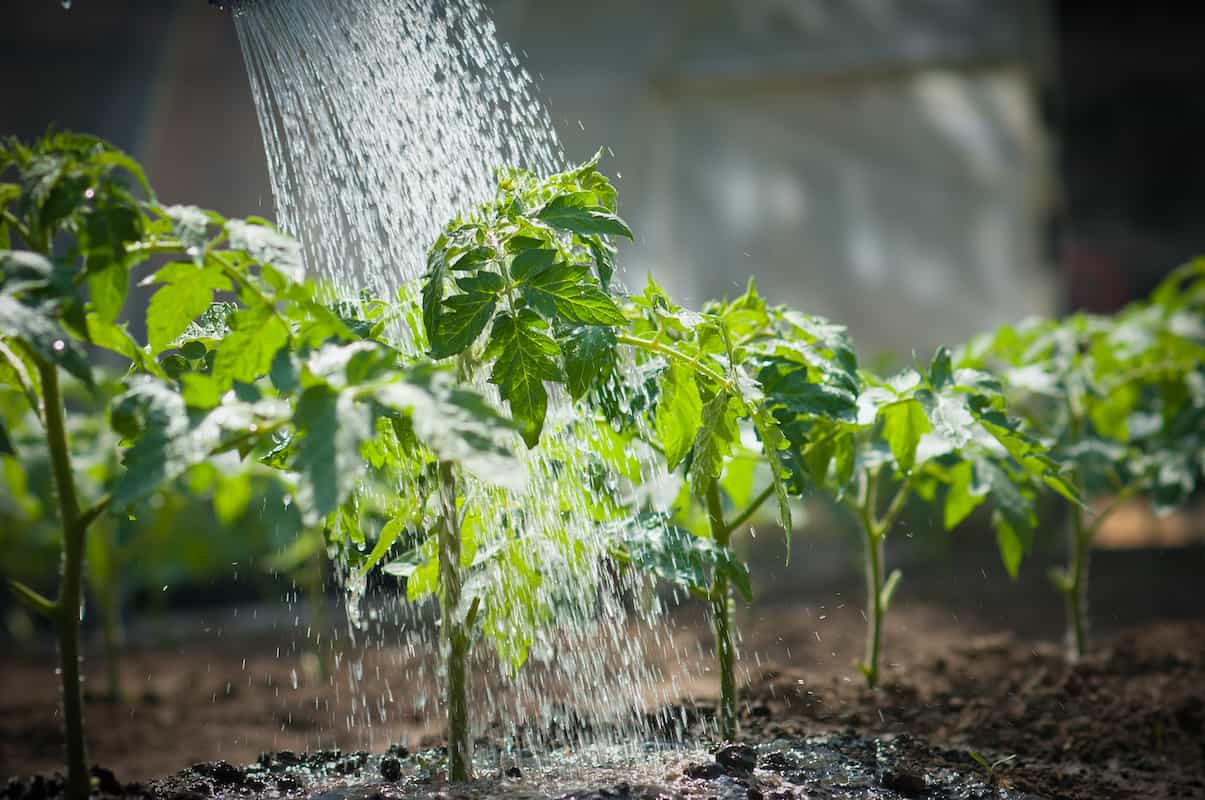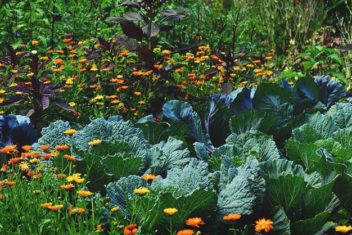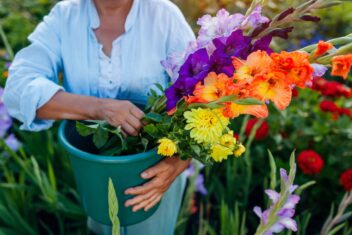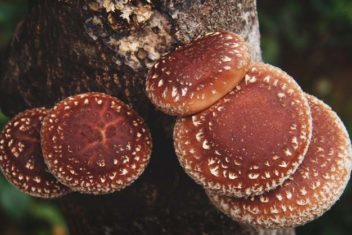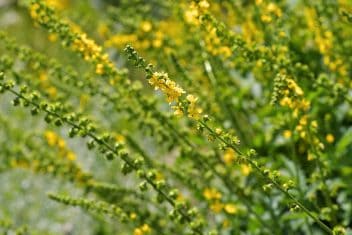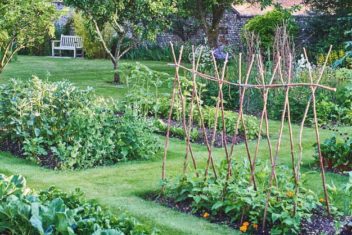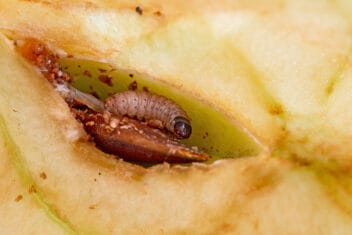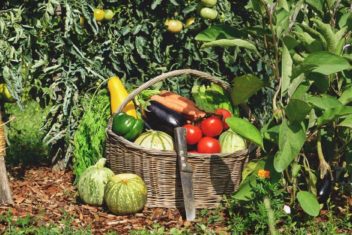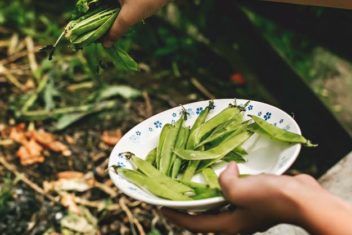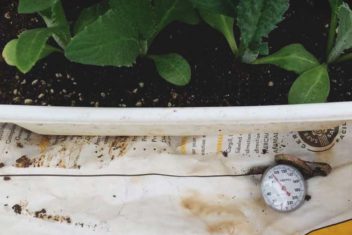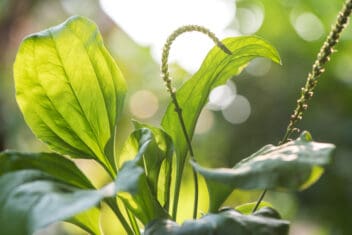A lot of gardeners want to eliminate insecticides and pesticides in the garden. The thought of using chemicals on food grown at home is unpalatable. That’s why we’re giving you all the best techniques for chemical-free gardening.
There are plenty of ways to grow vegetables that don’t use any chemicals or sprays what-so-ever. Instead, you can simply use nature to get a healthy, thriving vegetable garden.
After all, forests and natural areas don’t get sprayed, yet there is a natural balance that keeps plants producing year after year. Let’s look at how you can eliminate synthetic pesticides and insecticides in your garden.
Why Go Chemical-Free In Your Garden?
There are a lot of reasons to go chemical-free in your garden. Not only do most people want to limit the number of chemicals they’re eating, but those chemicals can leach into the soil and waterways. This hurts the environment, including fish and bird populations.
Pesticides don’t always target just the bad bugs. They can kill good insects as well.
On top of that, some herbicides, pesticides, and insecticides can cause cancer.
1. Plant Insect-Deterring Herbs
Herbs not only have health benefits and multiple uses in the kitchen, but they’re also great for deterring insects that you would normally have to spray with chemicals.
While you’re growing herbs for culinary uses, you use them as a defense against pests. How easy is that?
Chives
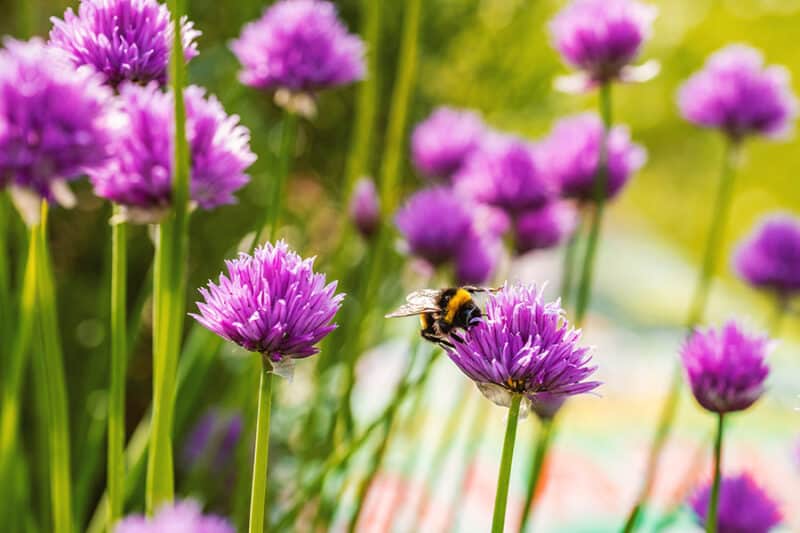
Chives deter aphids, carrot fly, and spider mites. These are all common pests that attack a wide range of plants.
Zone: 3 to 9
Companion Plant With
- Beets
- Carrots
- Kohlrabi
- Parsley
- Cabbage
- Broccoli
- Potato
- Peppers
- Squash
- Strawberries
- Tomato
Mint
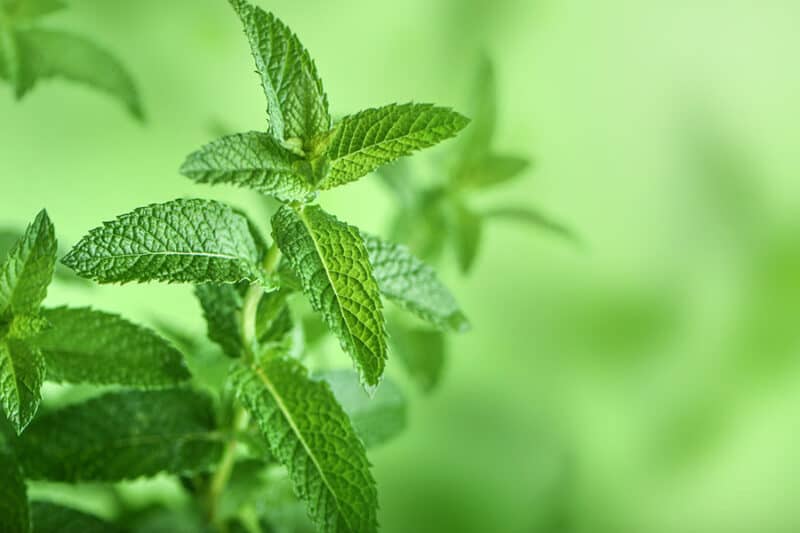
Mint deters ants, cabbage moths, aphids and flea beetles. Plant mint in pots around your garden. Pots are required because mint will spread quickly in the garden, taking over whole areas.
Zone: 3 to 11
Companion Plant With:
- Lettuce
- Bell Peppers
- Brussel Sprouts
- Egg Plant
- Peas
- Squash
Borage
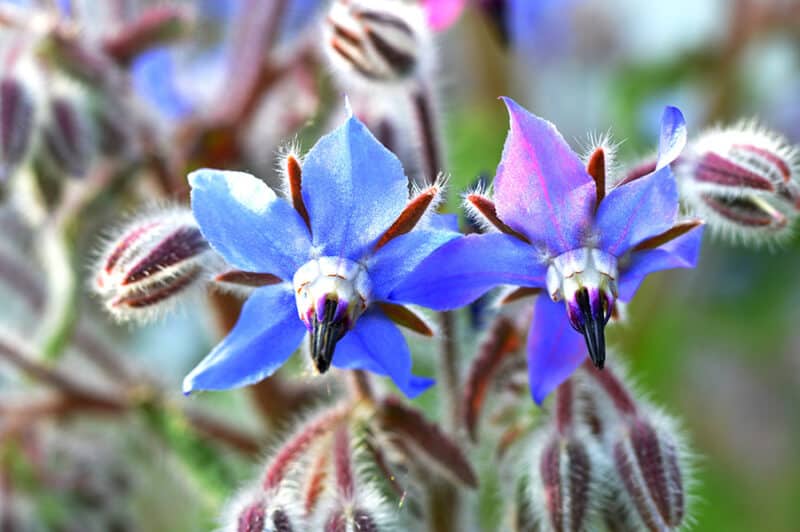
Like mint, borage will take over the garden and even appear in places quite a distance from where you initially planted it. Use pots or just pull it up when you see it appear because it pulls up easily. Apart from its deterrence uses, borage attracts bees and adds a wonderful taste to honey.
Zone: All zones
Companion Plant With:
- Strawberries
- Tomato
- Squash
Rosemary
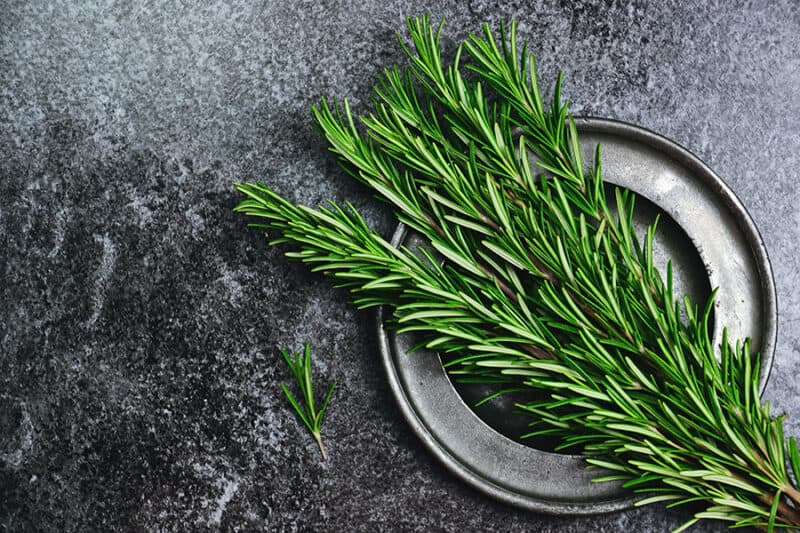
Rosemary repels cabbage moth and carrot rust flies.
Zone: 9 to 11
Companion Plant With:
- Beets
- Broccoli
- Cabbage
- Cauliflower
- Kale
- Lettuce
- Kohlrabi
Savory
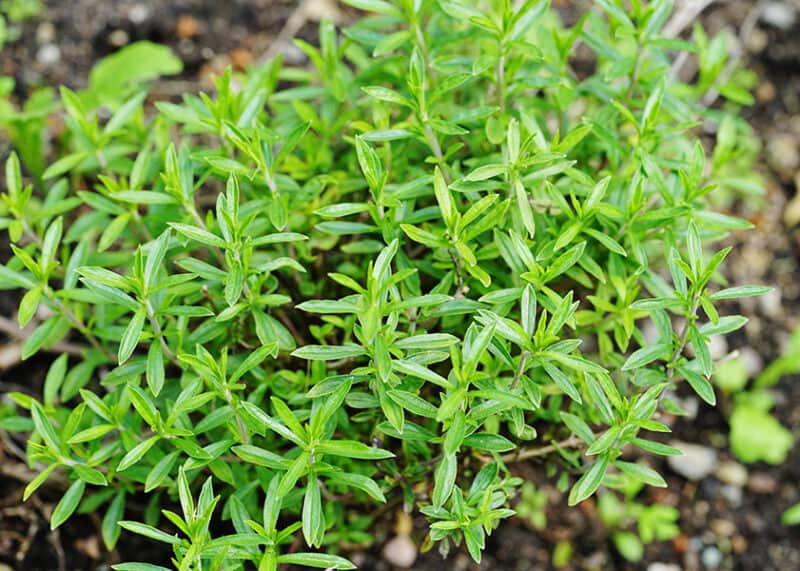
Mexican bean beetles can’t stand savory.
Zone : 5 to 11
Companion Plant With
- Onions
- Beans
Wormwood
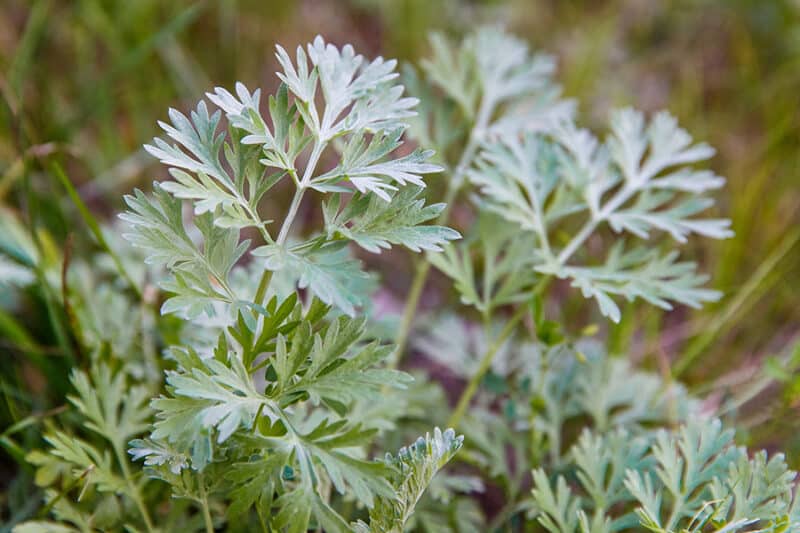
Wormwood repels those pesky flea beetles.
Zone: 4 to 8
Companion Plant With:
- Carrots
- Onions
- Leaks
Cilantro
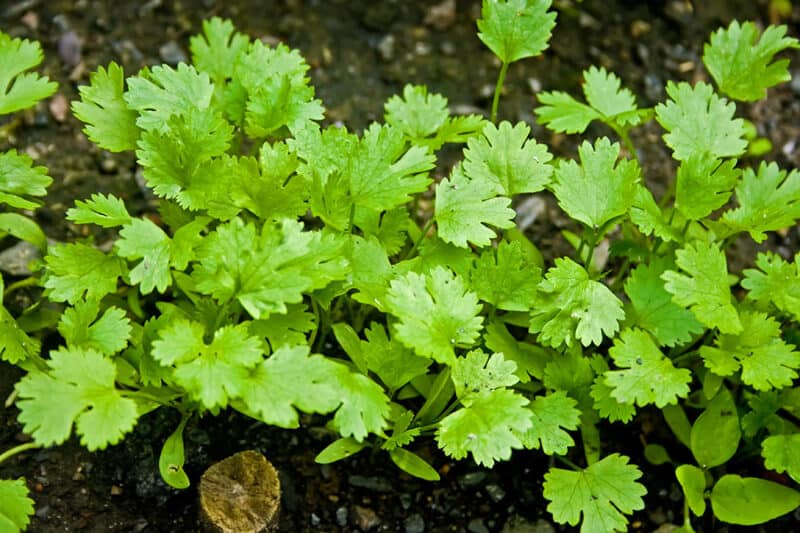
Love it or hate it, cilantro deters aphids and spider mites. Plant liberally through the vegetable garden, Being one of the stronger smelling herbs, I find cilantro effective, but only if there is a lot of it. Cilantro tends to bolt quickly in long dry summers.
Zone: 3 to 11
Companion Plant With:
- Basil
- Mint
- Yarrow
- Tomato
Herbs are an efficient, natural way to deter insects. With the right combination of herbs, you can cover most of the common pests.
2. Encourage Beneficial Insects
It’s easy to get started with chemical-free gardening by encouraging beneficial insects. Try planting flowers and herbs and see what insects you attract. Check to see if they are doing their job and killing pests.
There are a lot of insects that are beneficial to the garden, but often the sprays we use to kill the pests also kill the insects we want to remain.
Beneficial insects will do the job of killing pests for us, so it makes sense to allow them to do their job and at the same time, have spray-free vegetables.
Consider buying beneficial insects if you can, just like you used to buy pesticides.
Lady Bug Beetle (Ladybug)
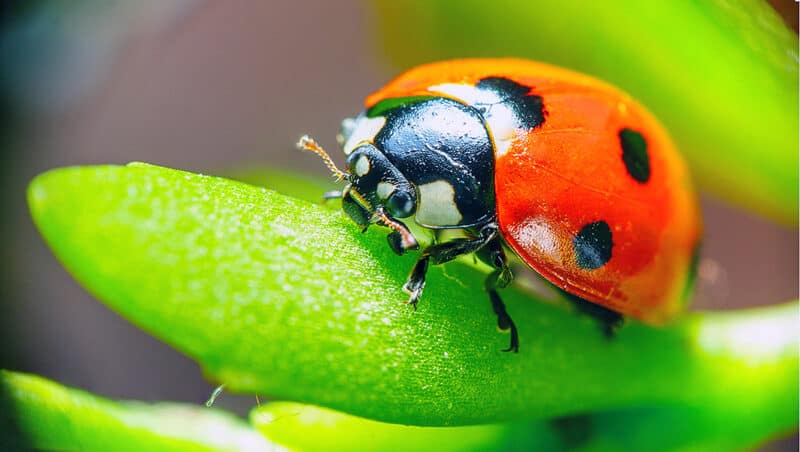
Sometimes the smallest of things are the strongest and ladybugs are a prime example. This little powerhouse is definitely a bug you want to encourage.
Lady bugs kill and eat:
- Aphids
- Caterpillars
- Mealybugs
- Scale
- Thrips
Encourage ladybugs by planting parsley, mint, lemon balm, dill, bergamot, and cosmos.
Braconid Wasp
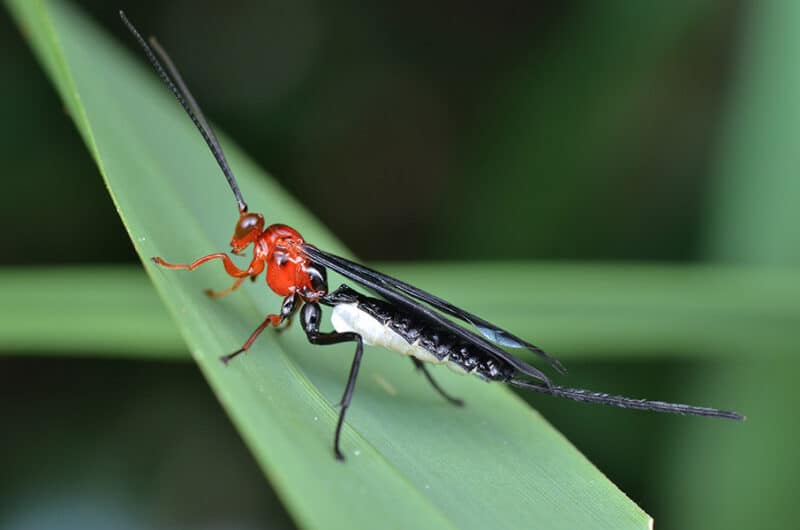
Not all wasps are bad. Some will work tirelessly in the garden for you. If you have a few tomato plants, this wasp is for you. It will parasitize the tomato hornworm by laying its eggs on the insect providing its young with food. It will also target:
- Aphids
- Beetles
- Stinkbugs
- Tent Caterpillars
Encourage braconid wasps by planting carrots, dill, fennel, chamomile, feverfew.
Soldier Beetle
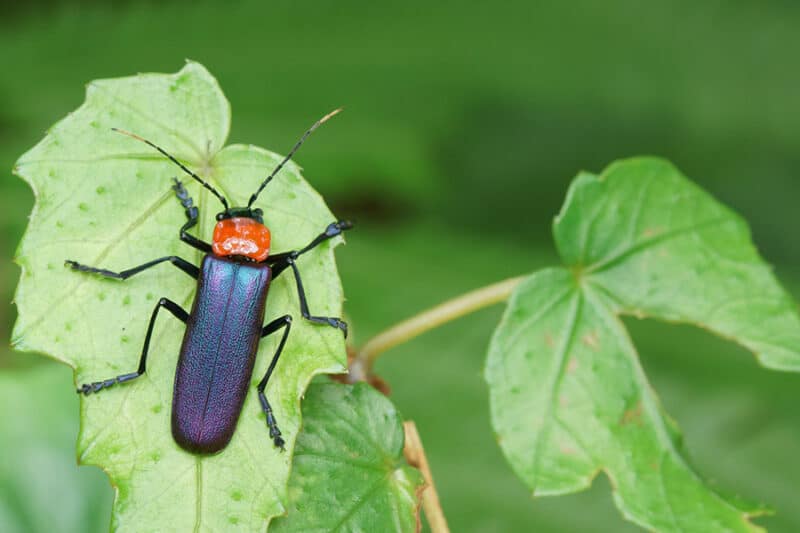
This little beauty sits on brightly colored flowers waiting for its prey. At the same time, the soldier beetle pollinates as it works on pests. It loves:
- Aphids
- Caterpillars
Lure the soldier beetle by planting marigolds and goldenrods.
Hoverflies
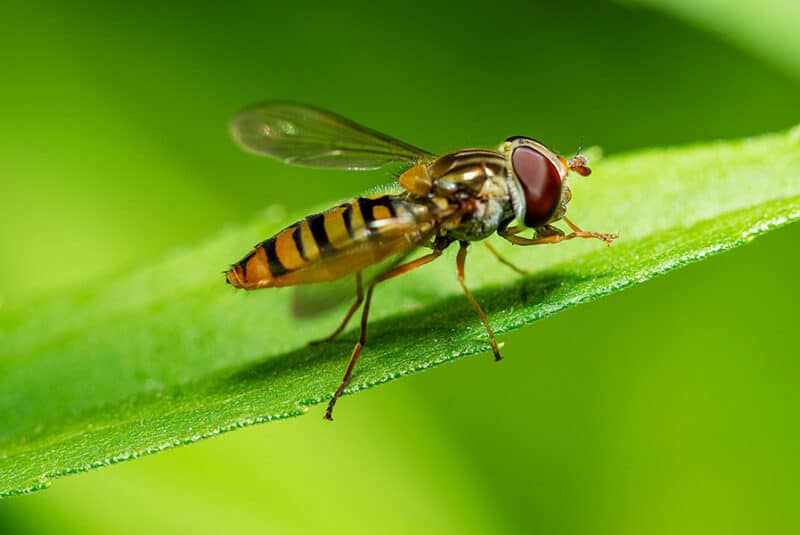
Also called syrphid flies, you will see this insect hovering above flowers. The female lays her eggs in aphid colonies, providing her young with lots of food. Hoverflies also target:
- Scale
- Thrips
- Mealybugs
- Caterpillars
Plant dill, mint, bergamot, parsley, lemon balm to attract them.
Lacewing
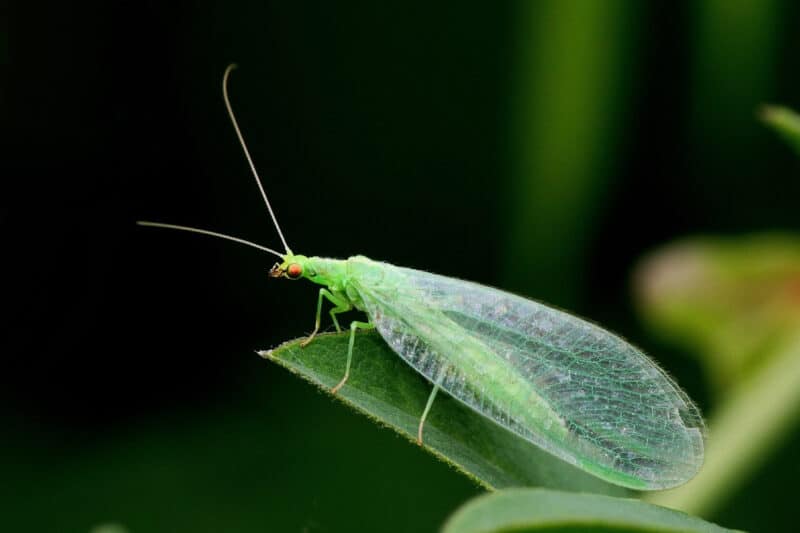
This delicate looking insect is actually a deadly killer. It’s a nocturnal hunter, targeting aphids. Lacewing also target:
- Whiteflies
- Thrips
- Mites
- Mealybugs
Plant cosmos, yarrow, goldenrod, Queen Anne’s lace, and marguerite daisies to attract lacewings.
Worms
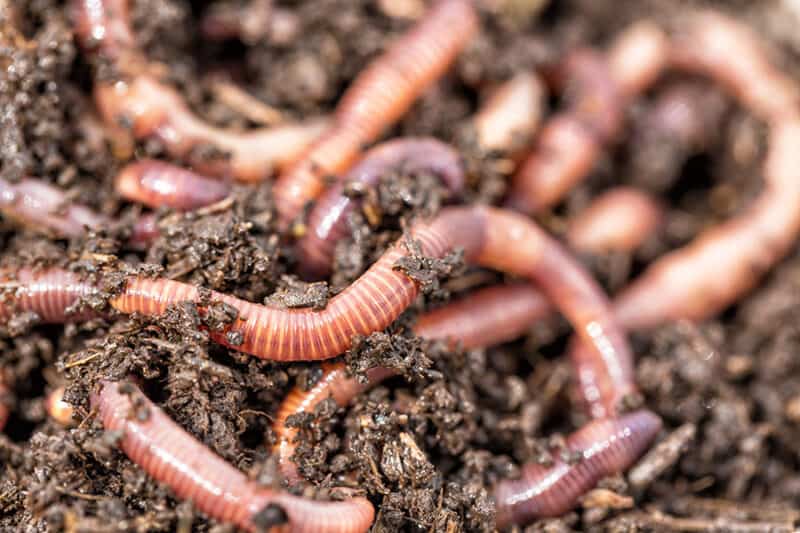
Technically not an insect, worms are one of the most important creatures to have in the garden. They break down organic matter, release nutrients into the soil through excreting, and allow air to circulate by traveling through the soil.
Worms are important simply because they make the soil healthy and in turn, the plants are healthy. Plants that struggle for nutrients are susceptible to disease and will succumb to pests much easier.
If your garden is depleted of worms, you can buy them, just like you buy worms for composting.
Bees
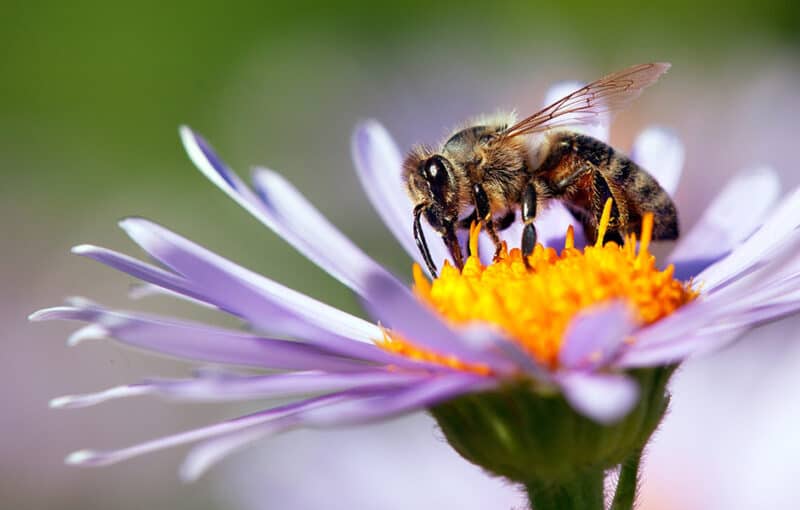
When I introduced two beehives to my homestead, my orchard and vegetable gardens produced two or three times the produce as the years before. Studies support the idea that bees increase harvest amounts.
You don’t have to become a beekeeper to lure bees into your garden. Plant plenty of flowers in your vegetable patch and the bees will come to you. Try your local bee club and see if any beekeeper wants to put some hives in your garden.
3. Natural Weed Control
It’s essential to keep weeds away in the garden because they can spread diseases and sap the nutrition from your plants. Chemical-free gardening means you can’t rely on herbicides, so you need to figure out natural ways to stop them from popping up.
One big mistake many gardeners make is pulling weeds or pruning small parts of their plants and dropping the cutting on the soil. This will cause diseases to take hold and weeds to reproduce by introducing them to the soil where they will return season after season.
Dispose of weeds and prunings in the compost unless they are diseased. If they are, you must burn them or throw them in the garbage.
You can also use mulch and soil solarization to control weeds.
4. Correct Watering Technique
Avoiding diseases before they appear is the goal in chemical-free gardening, so avoid anything that promotes disease. Incorrect watering often causes issues that needn’t have occurred.
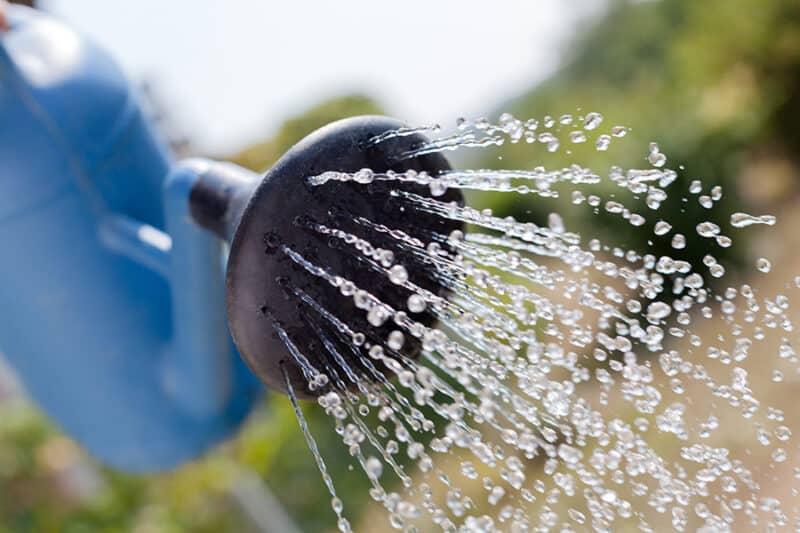
Give your plants a deep watering to encourage strong root growth. Frequent, shallow waterings encourage shallow roots, which can lead to sad plants. Depending on the plant, you’ll want to keep the soil constantly moist or allow it to dry out in between waterings.
Don’t water the foliage to prevent disease appearing. Instead, water at the base of plants.
Water in the morning so that plants have time to dry out. This discourages mold and fungus from forming.
Learn more about the correct watering techniques.
5. Support Plant Health
Weak, struggling plants have little hope resisting pests and diseases. Here are some healthy planting techniques:
- Plant with the seasons: Make sure you plant at the right time. If you plant too early or too late, the plant will struggle, inviting pests and disease.
- Plant in the correct area: If a plant needs full sun, it won’t thrive in the shade. The soil should be well-draining, if required, and try to get the pH right.
- Plant cover crops: Cover crops support soil health and help suppress weeds
- Mulch: Mulch keeps the soil warm, keeps water in, suppresses weeds, and at the same time, feeds the garden as the mulch breaks down.
- Feed: Most plants will grow to a certain extent, but won’t thrive unless they’re fed. Some plants are heavy feeders and deplete the nutrients in the soil quickly. They may appear healthy at the beginning, but as time goes on, they become weak and growth is stunted.
Big feeding plants include:
- Tomatoes
- Onion
- Broccoli
- Cabbage
- Corn
- Sunflower
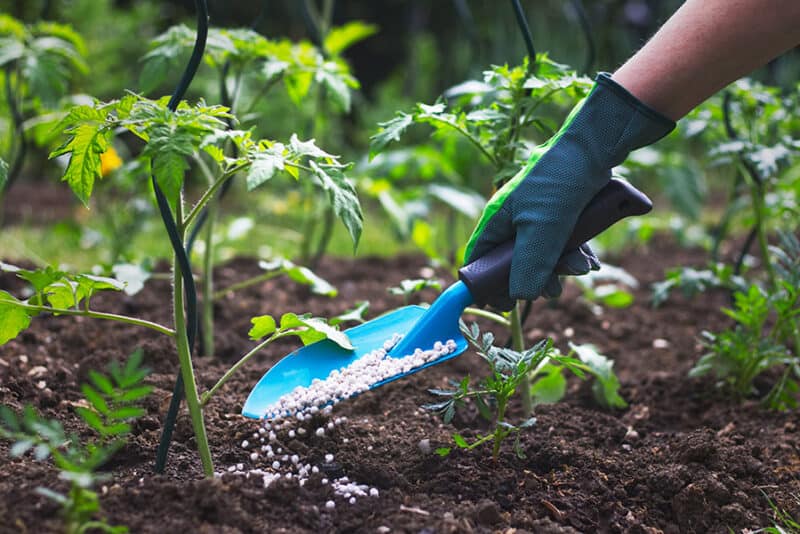
6. Chemical Alternatives
You don’t have to stop all sprays and chemicals at once. You can use chemical alternatives instead on your journey to chemical-free gardening. We have nine homemade natural bug sprays you can try.
If you’re looking for an alternative to herbicides, we have six recipes to check out.
